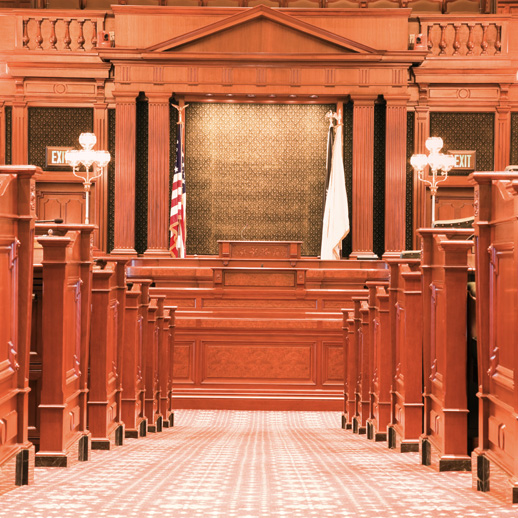This website uses cookies so that we can provide you with the best user experience possible. Cookie information is stored in your browser and performs functions such as recognising you when you return to our website and helping our team to understand which sections of the website you find most interesting and useful.
Sikich Series on Tax Reform – Tax Reform Moves to House-Senate Conference

On December 4, 2017, the House voted to send its tax bill to a House-Senate Conference, and appointed their conferees. Just two days later, the Senate did the same, also appointing their conferees. It should be noted that these votes were mostly procedural; no actual changes were made to the tax bills.
Upcoming Conference
House Ways & Means Committee Chairman, Kevin Brady, is set to lead the conference, while his counterpart in the Senate, Orrin Hatch, will also play a pivotal role in the process as will Speaker Paul Ryan and Senate Majority Leader Mitch McConnell. The Conference will try to resolve all differences in the two plans over the next week or so, and Brady announced today that the first formal meeting of the Conference will be next Wednesday, December 13, 2017. Once a compromised tax bill is reached, it moves to the House and Senate for final votes. Much work, however, is already going on behind the scenes by the conferees and staff to move tax reform forward.
What to Expect
While there is much speculation around what the final bill may look like, changes will be needed to iron out differences between the bills. Wheeling and dealing will pick up steam over the next few days, and rumors will continue to float around regarding the changes that are (or, are not) being made. Here is a high-level overview of possibly what to expect with a few key provisions:
- The limit on the deductions for state and local taxes may be revised. The $10,000 limit on property tax deductions that was in the House and Senate bills may be expanded. It could perhaps be revised to offer an option of allowing taxpayers to deduct either property taxes or state income taxes. Or, the $10,000 cap could be increased or modified in some other way.
- The individual and corporate Alternative Minimum Tax (AMT) were both scheduled to be repealed, but a late change in the Senate bill kept the AMT. This differs from the House which eliminates the individual and corporate AMT in 2018. There is much concern of the AMT impact with C Corporations as the proposed new tax rate of 20% is the same as the AMT rate. This will likely get revised in some fashion, but it is uncertain what the offset(s) may be to pay for the AMT repeal.
- The Senate bill drops the corporate tax rate to 20% in 2019, however, the House bill applies this new rate in 2018. While the final effective date could move to 2018, there is also some talk that the 20% rate might slip back to 21% or 22% to help pay for some of the other changes.
- The proposed changes in the House and Senate bills for pass-through businesses differ significantly. Both plans offer some tax relief, but with some new complexities. This will be a closely watched part of the Conference discussions.
- Brady also hinted that some of the international tax provisions may need to be phased in over several years due to the significance of these changes and the complexities involved with them.
While the House will have some input in the Conference on the compromised tax bill, all eyes will remain on the narrow margins in the Senate. Every proposed change that is made must be analyzed to see if any Senator(s) will object to the overall tax bill as a result of the proposed changes.
Please note that these proposed changes are not final. It is expected that the compromised tax bill that emerges from the Conference will move for final votes in the House and Senate before Congress breaks for its Christmas recess around December 21-22, 2017.
These documents will offer some additional insight into the tax reform legislation:
- A summary from the Joint Committee on Taxation (JCT) issued on December 7, 2017 that compares the House and Senate tax bills and addresses areas they agree and areas that they differ. This may be a helpful resource.
- A summary by the JCT of the amounts of all the various provisions in the Senate bill as passed on December 2, 2017;
- and a chart that compares selected provisions in the House and Senate tax bills.
If you have any questions regarding the Tax Reform, please contact your local Sikich Tax Advisor or visit www.sikich.sikichdevelopment.com for more information.
This publication contains general information only and Sikich is not, by means of this publication, rendering accounting, business, financial, investment, legal, tax, or any other professional advice or services. This publication is not a substitute for such professional advice or services, nor should you use it as a basis for any decision, action or omission that may affect you or your business. Before making any decision, taking any action or omitting an action that may affect you or your business, you should consult a qualified professional advisor. In addition, this publication may contain certain content generated by an artificial intelligence (AI) language model. You acknowledge that Sikich shall not be responsible for any loss sustained by you or any person who relies on this publication.




